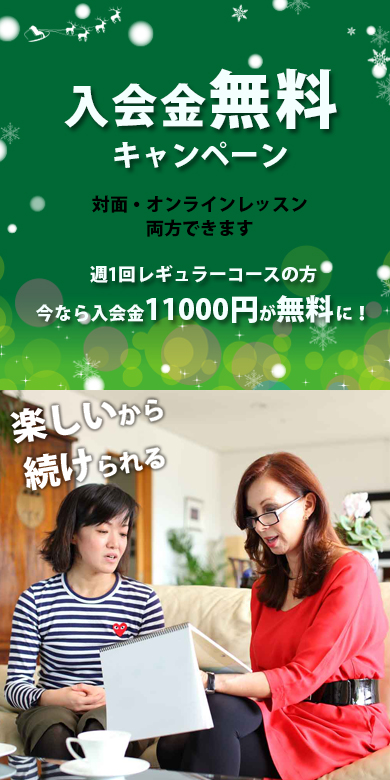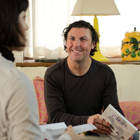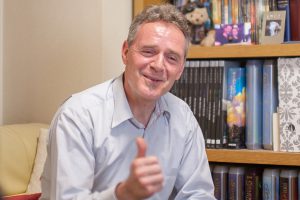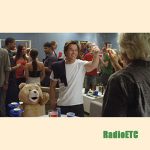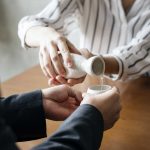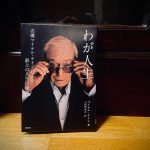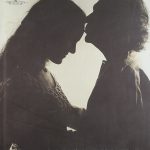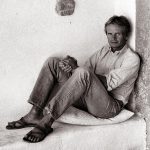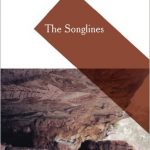BBCNewsリーダーの英語を学んだ理由~リチャード先生(四国) ETCマンツーマン英会話
<<休止・帰国された先生のページです>>
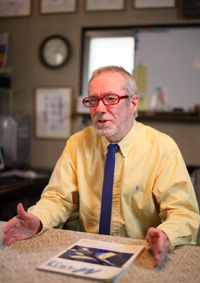
(*)四国へ引っ越しされました。スカイプでのレッスンが可能です。詳細は事務局へお問い合わせ下さい。
Q: お生まれはどちらですか
ロンドンから北へ約50キロにあるニュータウンで生まれました。多摩ニュータウンのようなところです。大戦後、ロンドンは空爆によりダメージを被ったため、多くの人々がロンドンから出て、郊外に新しい町をつくったのです。
I am from just about the 50 km north of London. And it’s a new town like Tama new town. After the war because of the damage to London, so many people had to move out of there and then they built a new town.
私のクラスメイトのほとんどは皆田舎の子供でした。しかし戦後ニュータウンウが建設され、ロンドンの下町イーストエンドからたくさんの若者たちが移住して来ました。そして高校で一緒になったのです。彼らはの喋り方はとても早くロンドン・イーストエンドのアクセントで話すので、私たち田舎の子供たちはそのカルチャーの違いに戸惑いました。
Most of my classmate, we were all countryside children not city boys. And after the war when they built a new town, many young people were coming from the east end of London, It’s Shitamachi part of London, to live in the new town. And they started to mix in the high schools. Because all of us like Inaka boys and suddenly you had all these city boys from London, who were speaking really fast and using their London, East End accent. So their culture is quite different for us.
Q 都会の子供たちはコックニーを話していたのですか?
コックニーとは少し違いますが似ています。ロンドンのバックスラングです。しかし、それは良い経験でした。私自身の世界を広げてくれたのです。ただの小さな田舎町に住んでいた頃の私の世界はとても狭いものでした。
A little bit different from Cockney but similar, London back slang. But it was good. it expanded my own world. Because when I was living in a very small country town basically, that was very narrow world.
Q 高校卒業後に芸術大学に進学したのですか?
いいえ。16歳で卒業し航空機製造会社でインターシップとして5年間働きました。5年終了した時点で、工場での仕事に全く興味が持てずに、その一方芸術にとても興味があったため、1年間浪人をして芸術家になるために芸術大学を受験しました。大学に入学したのは22歳の時です。
No, it didn’t work out like that. My education was very mixed up. I left school when I was 16 years old, than I went to work for an aircraft company. I did this 5 years preintership with them. But I was really not so interested to work in the factory. So I wanted to get out of the factory and I was really interested in doing art. So I took one year out. And then I did like one year Ronin and studied to get the entrance examination for art school for an professional artist. So I went back to college when I was 21 years old.
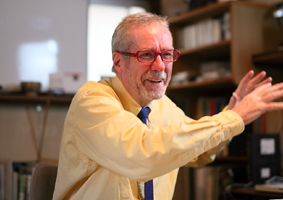
クラスメイトはみな裕福な人々でした。皇室の家族、総理大臣の娘たち、ダンヒル家の人々。お坊ちゃんにお嬢様。皆上流階級の人々でした。
私の家族は皆地元の方言を話していました。12歳の時、BBCのニュースリーダーの話し方をそっくりまねることを私は決意します。当時英国では自分の話し方が自分の処遇に影響することを知っていたからです。私は良い学校に行くことは出来ませんでしたが、訛りのないもっと綺麗な話し方を学ぶことができれば、自分にとってよりよい状況になると、この時すでに考えていました。芸術大学に行く頃には、私の話し方に強い訛は全く無くなっていて、上流階級の人々の中に入っても問題なく溶け込むことができました。
At art school all my classmates were really rich people, they were royal family people, prim minister daughters, Dunghill families, they are all Bochan, kind of Ojousama. They are very all high class people.
One of the things about my family was that they all used local Hogen. And when I was about 12 years old, I decided to copy the BBC news reader way of speaking. Because I knew at that time, in England a way you speak influences to a way people treat you. And so I didn’t go to a good school, but already I was thinking about if I could learn to speak more clearly without any kind of accent, that it would be better for me. So by the time I went to art school, my accent was OK to meet to mixing with all those high class people. Because I didn’t have any strong accent.
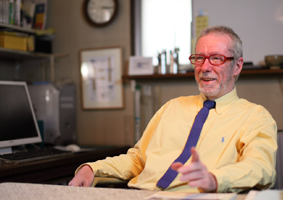 芸術大学卒業後、どうすべきか悩んでいました。私は画家と彫刻家としての教育を受けましたが、今後の進路はとても厳しいものだと思っていました。裕福な子供であれば芸術家として創作活動を続けらるよう家族が支援してくれるのかもしれませんが、私はそうではありませんでした。そこで私は、VSO (Voluntary Service Overseas)というボランティア団体に就職することを決めました。厳しい面接でしたが合格することができ、三年間パプアニューギニアに行くことになりました。焼き物、ゴムの加工、手芸や織り物などの小規模な産業の育成に従事していました。26歳の時には、40名のスタッフと多くの作業場を抱えるリサーチセンターのディレクターに昇進しました。あの3年間は本当に冒険のような毎日でした。
芸術大学卒業後、どうすべきか悩んでいました。私は画家と彫刻家としての教育を受けましたが、今後の進路はとても厳しいものだと思っていました。裕福な子供であれば芸術家として創作活動を続けらるよう家族が支援してくれるのかもしれませんが、私はそうではありませんでした。そこで私は、VSO (Voluntary Service Overseas)というボランティア団体に就職することを決めました。厳しい面接でしたが合格することができ、三年間パプアニューギニアに行くことになりました。焼き物、ゴムの加工、手芸や織り物などの小規模な産業の育成に従事していました。26歳の時には、40名のスタッフと多くの作業場を抱えるリサーチセンターのディレクターに昇進しました。あの3年間は本当に冒険のような毎日でした。
After I finished the art school, I didn’t know what to do, because I trained as a painter and a sculptor. And I thought it’s going to be difficult, because I am not a rich boy. The rich kids could go on and work as an artist and their family would support them. So I decided to apply for a volunteer agency called VSO (Voluntary Service Overseas). And It was also quite difficult interview. But I got accepted as a volunteer. And I went off to Papua New Guinea for 3 years.So I was working on pottery development and I did other small industries like rubber processing and handcraft and weaving. When I was only 26 years old, I became the director of research centre. We had 40 staffs and a lot of workshops and things. So that was really 3 years adventure life.
その後、オーストラリアで一年間、芸術の先生として働いていました。でも、パプアニューギニア、そしてオーストラリアの後に英国に戻ったとき、非常に閉塞感を感じました。西部の辺境地のようなパプアニューギニアで冒険の日々を送っていたからです。英国に戻ったとき、「ここで高校の教師には戻れない」と思いました。
After that I went to Australia to work as an art teacher for one year. But, when I went back to the UK, after Papua New Guinea and Australia, it felt very tight feeling, because in New Guinea it was like wild west place and so many adventures everyday. So when I went back to the UK, I thought “Oh I couldn’t really go back to teaching high school in the UK”.
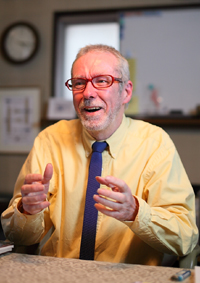 芸術大学での最後の年、私は日本の芸術、音楽にとても興味を持っていました。囲碁やマージャンの遊び方も学びました。私の作品の日本のインテリアに基づいたものが多くありました。鳥居の形も好きでした。これらのイメージを私は彫刻の中にも取り入れました。本当に日本に行きたいと思っていました。
芸術大学での最後の年、私は日本の芸術、音楽にとても興味を持っていました。囲碁やマージャンの遊び方も学びました。私の作品の日本のインテリアに基づいたものが多くありました。鳥居の形も好きでした。これらのイメージを私は彫刻の中にも取り入れました。本当に日本に行きたいと思っていました。
But thing is when I finished art school or my last year, I was very interested in Japanese art, music. I learnt to play Igo and Mahjong. And my artwork was based on a lot of Japanese interior. I liked Torii gate things. I was using these images for my sculpture. And at that time I actually really wanted to come to Japan.
幸運でした。渋谷の英語学校がロンドンの新聞に求人広告を出したのです。面接に合格し1981年私は来日しました。この学校は外務省でも授業を行っていました。一年後、私はそこで教えました。世界中の大使館に勤務することになる日本の政府高官に対する英語集中講座です。外務省だけではありませでした。文部省、大蔵省、防衛庁、SPの方もいらっしゃいました。そこで3年教えました。その後、フリーランスの英語講師となり自宅や企業で教えました。
I was very lucky. English school in Shibuya, they advertised in London newspaper, and I got an interview, everything went OK. And I came to Tokyo 1981. And that school was also teaching at Gaimusho. After one year, I worked there. That was a intensive English classes for Japanese government officials who were going to work in embassies all around the world. It wasn’t just only Gaimusho, there was Monbusho, Okurasho, Boueichou and secret police. So I did that for about 3 years. After that I started freelance teaching at home, teaching at company class.
Q しばらく英語のレッスンをお休みされていた時期がありましたね。
1993年頃、マッキントッシュのパソコンを購入しました。当時私は芸術活動を再開したいと思っていました。私が40歳の時です。コンピュータは近い将来非常に重要になることを知っていましたので、この新しい技術を学ぶこと有益であると思ったのです。そして、このような飛行機の絵画作品の制作を始めるようになったのです。
About 1993, I got my first Macintosh computer. And at that time, I wanted to go back to the art. I was 40 years. I thought this is good chance for me to learn new some technology because I knew the computers were going to be very important in the near future. And then I got into doing the artwork of these kind of drawings for airplanes.
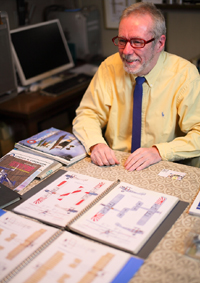 私の作品のいくつかは竹橋の毎日新聞のアートギャラリーに展示されています。2009年には東京大学の仕事もしました。私が描いたグライダーの絵画を利用して同大学の学生が模型を制作したのです。彼らのシンポジュームでも使用されました。現在、同大学内に常設展示がありますが、そこに私の作品も展示されています。
私の作品のいくつかは竹橋の毎日新聞のアートギャラリーに展示されています。2009年には東京大学の仕事もしました。私が描いたグライダーの絵画を利用して同大学の学生が模型を制作したのです。彼らのシンポジュームでも使用されました。現在、同大学内に常設展示がありますが、そこに私の作品も展示されています。
I had some of my artworks exhibited at the Mainich Shinbun’s art gallery at Takebashi. I did on some work for Tokyo University at 2009. I did this drawing of a glider and Tokyo University used it to make Mokei and that was used for their symposium. So now there is a permanent display in Tokyo University and some of my artworks are in that display.
Q レッスンはどのように進めていますか
私の教え方のスタイルは、先生と生徒が同等であること。日本の先生と生徒のような関係は好きではありません。生徒さんにリラックスして欲しい。ですから、生徒さんにプレッシャーをかけるとはありません。
My teaching style is I always like to keep the equal. I don’t like the Japanese Sensei and the student way. I like to make them feel relaxed. So I don’t put any pressure on the students.
英語学習において日本人に大切なことが2つあると思います。ひとつは発音です。ここでは先ず最初に発音のレッスンを行います。日本語の音声は喉で作られます。しかし英語の音声はお腹から送られてくる空気圧で作られます。「a e i o u」のような母音もそうです。喉は全く使いません。この空気圧を使いあとは口の形を変えるだけです。この空気圧はRとLの発音でもとても大切です。Lの発音では、空気圧が上下している舌にぶつかりますので、とてもソフトな音になります。しかし、Rは舌が寝たままの状態で動きませんので、とても力強い音になります。Thも同じですね。通常私はこれをろうそくを使って教えています。
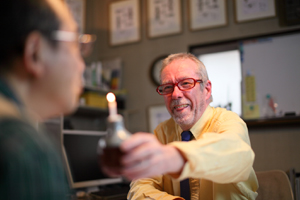 I think there are 2 points for Japanese. One is pronunciation part. So I always teach here phonetics before I start. One of the biggest things for Japanese people is that the sound of Japanese language is made in throat. But for English, it’s made from the air comes up from the stomach. And so vowel sounds like a e i o u are coming from the stomach. The throat doesn’t do anything. All you are doing is just changing the shape of your mouth and using the air pressure. Air pressure is very important for R and L. With the L sound, your tongue goes up and down. The air is hitting the tongue. So L is very soft sound. But with R, as the tongue stays down, so R is very powerful. Th is the same. What I normally do is I just use a candle.
I think there are 2 points for Japanese. One is pronunciation part. So I always teach here phonetics before I start. One of the biggest things for Japanese people is that the sound of Japanese language is made in throat. But for English, it’s made from the air comes up from the stomach. And so vowel sounds like a e i o u are coming from the stomach. The throat doesn’t do anything. All you are doing is just changing the shape of your mouth and using the air pressure. Air pressure is very important for R and L. With the L sound, your tongue goes up and down. The air is hitting the tongue. So L is very soft sound. But with R, as the tongue stays down, so R is very powerful. Th is the same. What I normally do is I just use a candle.
もうひとつは、英語のリズムです。英語にはリズムとスピードがあります。同じスピードで話されることはありません。日本語は「タ・カ・ダ・ノ・バ・バ」の様に速度は一定ですね。もちろん「ウッソー?」、「ホントー?」のような発音もありますが、非常に限られています。一方英語は、「wow, tooooo hot today」のようにtooの部分を伸ばして発音をしたりします。 優しくWhat are you doing?と言うのと、whatの部分を強く発音して、 [What] are you doing? と言うのとでは、意味が変わって来ます。このようなレッスンをまず最初のレッスンで行います。
And the other part is the rhythm of English. English has a rhythm and speed. It doesn’t go at the same speed. Japanese tense to be just like TA-KA-DA-NO-BA-BA. Of course you have like Usso, Honto before something like that. There are a few things. But the words are not really suitable stretched. But in English, “wow, tooooo hot today”. too is stretched. What are you doing. [What] are you doing? By changing the pressure, you change the meaning. That’s something I do right at the beginning.
Q 英語の正しいリズムをマスターする良い方法はありますか?
ゆっくりと話すことだと思います。日本の生徒さんは英語を早く話すことが良いと思っています。しかしそうではありません。なぜなら、早く話すとリズムを付けられないからです。リズムをつけて話すことのほうが、早く話すことよりも良いことなのです。 I think it’s speaking more slowly. Japanese students think speaking in English fast means good, but it doesn’t mean good. Because speaking fast doesn’t have rhythm. So speaking with rhythm is better than fast.
☆リチャード先生出演のRadioETC/Podcasting
▽英語はストレートな言語?
▽“Where do you live?”を使わずに情報を聞き出す質問
▽“We must play tennis sometime”の意味は
▽イギリス人とアメリカ人の話し方の違い
▽千利休とキリスト教
▽ジョン・レノンとロールスロイス

